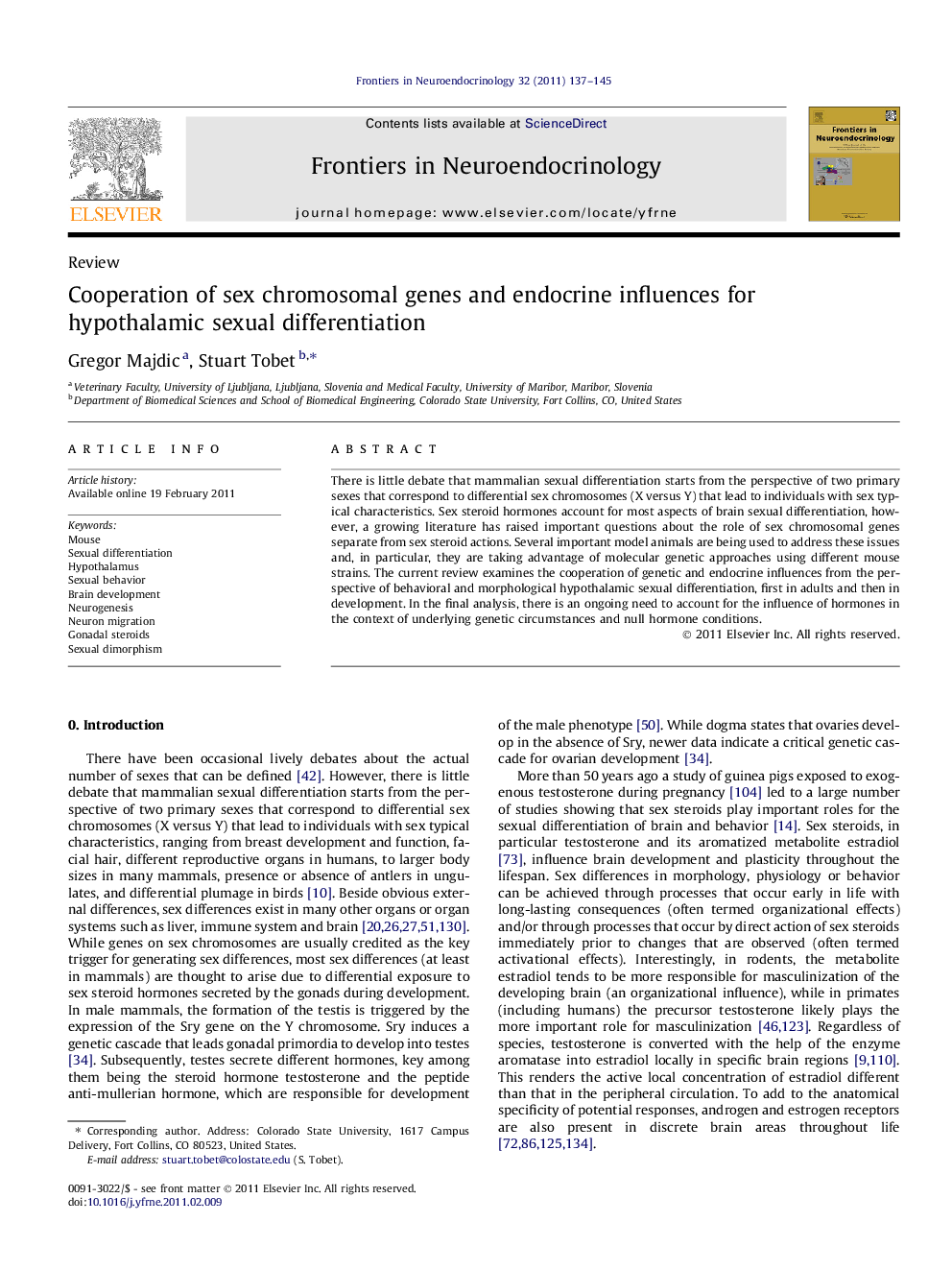| Article ID | Journal | Published Year | Pages | File Type |
|---|---|---|---|---|
| 2799395 | Frontiers in Neuroendocrinology | 2011 | 9 Pages |
There is little debate that mammalian sexual differentiation starts from the perspective of two primary sexes that correspond to differential sex chromosomes (X versus Y) that lead to individuals with sex typical characteristics. Sex steroid hormones account for most aspects of brain sexual differentiation, however, a growing literature has raised important questions about the role of sex chromosomal genes separate from sex steroid actions. Several important model animals are being used to address these issues and, in particular, they are taking advantage of molecular genetic approaches using different mouse strains. The current review examines the cooperation of genetic and endocrine influences from the perspective of behavioral and morphological hypothalamic sexual differentiation, first in adults and then in development. In the final analysis, there is an ongoing need to account for the influence of hormones in the context of underlying genetic circumstances and null hormone conditions.
Research highlights► Murine models used to study the interaction of genetics and hormone influences. ► Sex steroid and genetic interactions for morphological differentiation. ► Sex steroid and genetic interactions for behavioral differentiation. ► Sex steroid and genetic interactions for hypothalamic development.
